Many businesses understand the benefits of using VoIP but worry about the financial outlay of moving to a new telephone system. One of the biggest expenses of setting up a phone system is the phones, particularly when you consider how many you might need. So can you use your existing phones for VoIP, or will you need new ones?
You can use all of the following phones for Voice over IP telephone systems:
- Analogue phones (with adapter)
- IP phones
- Softphones
If you’re currently using analogue phones, you’ll be glad to know that you can use them with VoIP. But then the question arises of whether you should, or whether you should invest in new devices. By the end of this blog post, you will know all there is to know about the phones that you can use with VoIP. I’ll compare them on:
- Quality
- Cost
- Flexibility
Quality Comparison For VoIP
According to Invoca, 65% of people prefer to contact a business by phone, whereas just 24% prefer to fill out an online form. The importance of a business telephone system cannot be overstated, but you must also ensure you’re using a quality system and suitable phones. 66% of customers will switch companies because of poor customer service, according to Accenture, so you must ensure you aren’t let down by dodgy phones.
Which of these phones works best with VoIP? Let’s take a look at each type of phone individually and try to definitively answer which offers the best quality where VoIP is concerned.
Analogue phones
Analogue phones can be used with VoIP, but they aren’t exactly ideal for VoIP. Because analogue phone manufacturers didn’t design their devices for VoIP, they won’t fully utilise the capabilities of communications using internet protocol. Furthermore, you have to use an adapter to use analogue devices with VoIP. This is hardly ideal and quality can be poor if you don’t use a suitable adapter.
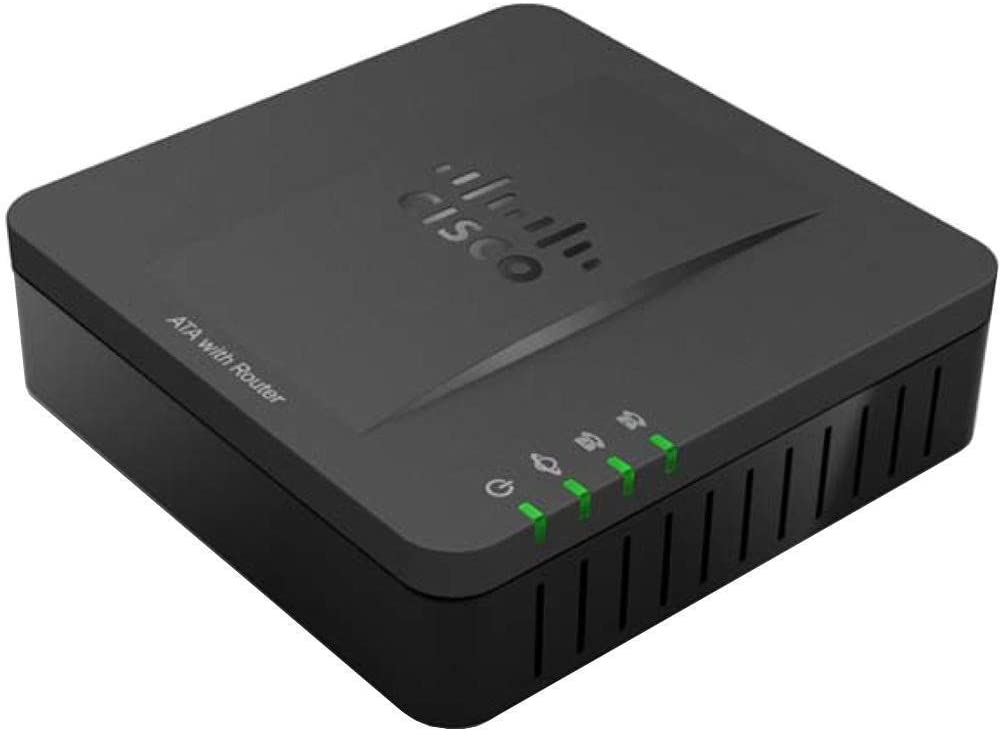
An adapter allows you to use analogue devices with your IP PBX or hosted VoIP provider’s system, but you miss out on functionality and therefore quality. For instance, an analogue phones may not have buttons for specific functions that can improve both customer and employee experience.
IP Phones
IP phones are designed specifically for use with VoIP technology. As a result, they allow you to fully realise the capabilities of VoIP. Ordinary phones do not have the same feature set as IP phones. For example, an IP phone has buttons for redialing, forwarding and transferring calls, and placing calls on hold amongst other things.
Another advantage of IP phones is that they’re usually PoE, which stands for Power over Ethernet. Not only are IP phones powered by an Ethernet cable, but the same cable also connects the device to your network and enables it to make and receive calls. You don’t need to have countless wires in and out of your devices, because one cable does the job.
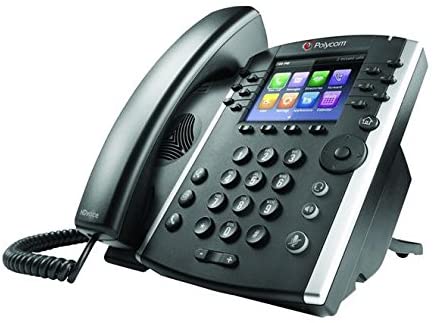
Because IP phones are designed to integrate perfectly with VoIP, calls will be crystal clear providing you have a suitable internet connection. Combine this with all the extra features and you have a phone of excellent quality for use with VoIP.
Softphones
A softphone is an application developed by a VoIP provider that allows you to use the full functionality of your PBX on any internet-enabled device with a microphone and speaker. For example, a smartphone, tablet, or laptop. The drawback of this flexibility is that call quality is dependent upon two factors:
- The quality of your internet connection
- The quality of the device the softphone is installed and used on
If you are using a softphone on an old computer with insufficient processing power, call quality will be very poor. Keep that in mind when you’re deciding whether or not softphones would meet the requirements of your business.
Softphones are designed by VoIP providers, so the quality’s there in terms of features. All the features that you enjoy when using IP phones can also be be used when using softphones.

Winner: IP Phone
The IP phone is undoubtedly coming out on top here. IP phones are designed for use VoIP, so they’re automatically more suitable than analogue phones.
IP phones usually offer better quality than softphones because they are dedicated devices designed only for communication purposes. If you have softphones installed on other devices, other applications are also consuming processing power. IP phones offer greater quality as a consequence.

Cost Comparison For VoIP
I’m sure every business would reduce their costs if they could, so why spend more on phones than you have to? Let’s take a look at how much these devices are going to cost your business.
Analogue phones
Analogue phones are often very cheap. For example, you can get an analogue phone for as little as £12.99. An analogue phone is unlikely to cost any more than £100, but they lack a great deal of functionality.
For a new business-grade analogue phone, the minimum you should expect to pay is £40 per device. You can pick up refurbished devices for even cheaper!
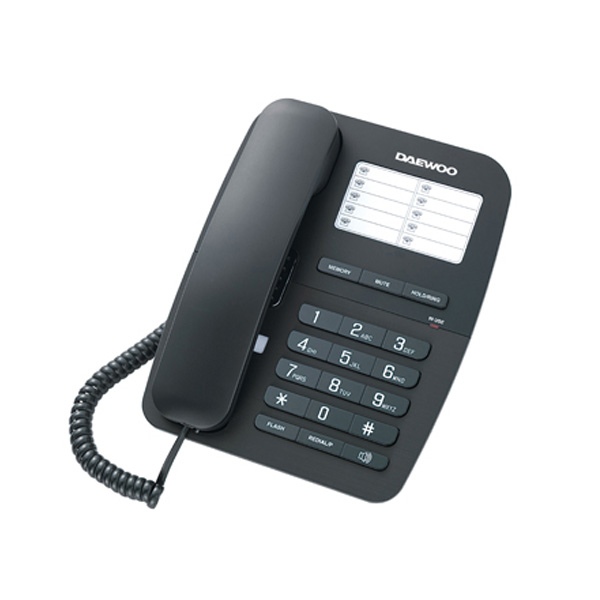
If you’re purchasing phones to use with VoIP, note that analogue phones will need an adapter. This could wipe out the cost savings of purchasing cheaper phones. If you have 10 or more users, adapters could be very costly. It may end up being more worthwhile purchasing devices actually created to work with VoIP.
IP Phones
The cheapest entry-level IP desk phone I found was the Yealink SIP-T19P. This phone costs £59 on Amazon. However, this is a fairly basic device and most businesses will need or require something better.
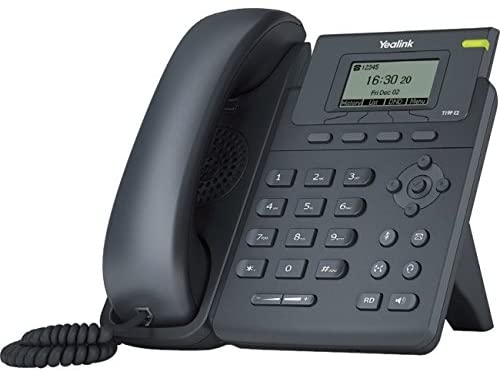
A better mid-range IP phone is the Polycom VVX 411, which currently costs £124 on Amazon. This device has an LED display, 12 programmable buttons, and can use Power over Ethernet.
The VVX 411 is the mid-range IP phone I would personally recommend. It works with the vast majority of IP telephone systems, the user interface is easy for all to use, and is relatively inexpensive compared to some IP phones.
IP phones can cost as much as £600 if you’re looking for something really fancy. One example of an expensive IP phone is the Alcatel-Lucent 8068S Bluetooth desk phone. This device has a large touch screen display, HD voice technology, and integrated Bluetooth functionality. I personally don’t see the necessity in a device such as this, but it’s a stylish IP phone with plenty of features that’s built to last.
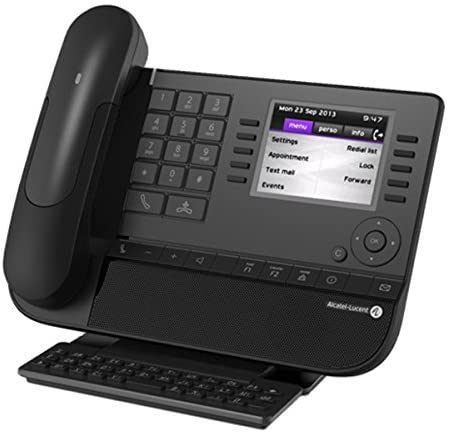
It is worth noting here that some providers will let you pay monthly for IP phones rather than paying for them in one big chunk. In this case, a mid-range IP phone can cost as little as £5 per month depending on the length of your contract.
Softphones
Softphones usually cost a small monthly fee, although sometimes the charge is already bundled in with your VoIP licence. In most cases, one user will cost you £5 – £10 per month. This user can usually install the application onto numerous devices, such as a laptop, a desktop computer, and a smartphone.
You may already paying for softphones without even realising it, so it is perhaps the most cost-effective of your phone options.
Winner: Softphone
It’s possible that softphones are bundled in with your licences, so this could be the cheapest option by a long way. Even if you have to pay for softphones separately, they usually cost £5 – £10 monthly per user. One user can install the application on several devices, so they’d essentially have all the functionality of your telephone system no matter where they are.
Flexibility Comparison For VoIP
Most business leaders would agree that it’s increasingly important to have a flexible telephone system. So which of these phone options is best when considering flexibility?
Analogue Phones
Analogue phones are particularly inflexible. When using them with a voice over IP telephone system, they must plug directly into the adapter which must then plug into the hardware in your office. So if you needed to leave the office in a hurry and work from elsewhere, it’s not as if you could take your phone with you.
One of the advertised benefits of VoIP telephone systems is that they can be used from anywhere. However, this advantage really isn’t applicable when you’re using analogue phones, because they need to be plugged into the hardware in your office.
IP Phones
IP phones are essentially computers. All the VoIP user information is stored on the phone, which means the phone can be used anywhere.
This is particularly beneficial for businesses with employees that work in numerous locations. It is possible for users to take their PoE IP phone with them and plug it into an Ethernet port wherever they are working. This will allow them to make and receive calls no matter where they are.
PoE IP phones are relatively flexible because you can plug them in anywhere and continue to make and receive calls. The only drawback is the fact you have to carry an IP phone about with you no matter where you go!
Softphones
You can install softphone applications on a wide range of devices, from smartphones to laptops. As long as your devices have a connection to the internet, you can make and receive calls using them.
If you are using a softphone application on your smartphone, your mobile data connection is suitable for making and receiving phone calls. Any type of data connection enables you to use the full functionality of your IP PBX no matter where you are.
Winner: Softphones
Softphones are more flexible than any other type of phone that can be used with VoIP. They can be used on any internet-enabled device with a speaker and a microphone. You can use these devices to make and receive calls using your IP telephone system no matter where you are, so long as you have a data connection.
Conclusion: Use IP Phones or Softphones
After comparing the types of phones that you can use with VoIP, one thing is immediately clear: you shouldn’t use analogue phones if you can avoid it. Analogue phones simply aren’t designed for use with VoIP. You have to use adapters and so on to use them for internet telephony, which isn’t ideal when there are devices out there designed specifically for use with voice over IP systems!
If you’re using a voice over IP telephone system, use IP phones and/or softphones wherever possible. You will have full access to the functionality of your VoIP system without being held back by antiquated technology.
